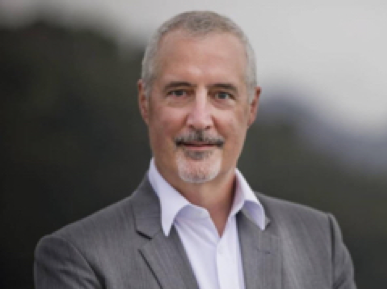TEX Advisory Board Member Kevin Noone (Stockholm University) imagines community science 20 years hence.
As part of an exercise to identify strategic priorities at a recent meeting of the TEX Advisory Board, members took a moment to imagine what TEX might look like 20 years from now. We were floored by the seriously inspiring ideas that bubbled up from this seemingly fanciful exercise.
Here’s a vision of the future from Board member and co-chair, Kevin Noone, a Professor in the Department of Environmental Science and Analytical Chemistry at Stockholm University:
A group of about 200 people are sitting in a large tent erected near the cable car terminus at the top of Table Mountain in Cape Town in the Republic of South Africa. In addition to being served samples of the wonderful local wines, the guests have been drinking the abundant clean water produced close to the site. They have been listening with rapt attention to a presentation given by Rosemary Mtukudzi, Director of TEX.
Rosemary explained how she was grateful that TEX had been able to coordinate the most comprehensive and holistic project about water resources ever done in South Africa. She told the audience about how TEX connected ocean scientists and hydrologists from the AGU community with city planners to help site and dimension the latest fish farm built in the region. The scientists were able to help find a site at which nutrients and other natural chemical inputs from terrestrial sources would help nourish the fish and offset the increasing detrimental effects of ocean acidification on the farmed fish.
She talked about how TEX connected regional planners with one of AGU’s partner organizations—the International Association of Engineers for Sustainable Development—to design a desalinization plant that has meant that Cape Town will never again run out of fresh water for its citizens and visitors. To conclude her presentation, she described some selected results from a research and education project that examined how water deposited directly to the local vegetation from the fog at Table Mountain is a key factor in maintaining ecosystem health and resilience in one of the world’s most biologically diverse regions.
She explained how TEX helped connect AGU researchers working at the Kirstenbosch National Botanical Garden with K-12 education specialists and South African historians to help create a new ecology exhibit at Table Mountain that is housed in a new, carbon-neutral building financed by the Argo Foundation.
Rosemary is especially proud to be presenting the Young Pathfinder Award for Excellence in Community Science to Lin Zhao from the University of Cape Town for her contributions to solving the problems of measuring and modeling the terrestrial inputs to the Cape Town coastal area that allowed the optimal site for the fish farm to be chosen. She will present the award together with the Vice Chancellor of the University of Cape Town, who will add some words about how having an evaluation system in place to capture the added value of community interactions—and reward early-career researchers like Lin—has made the University and its work more visible and much more relevant in the 10 years since the system was implemented.
The celebration will end with a Zulu dance and music performance by the Diawara Dance Ensemble. With some luck, folks will capture video and audio evidence that even scientists can dance.
What’s your vision of community science in the 2030s? Share your ideas with us at [email protected] or through Community Science Connect.





